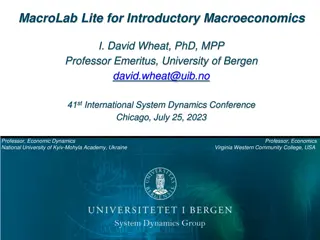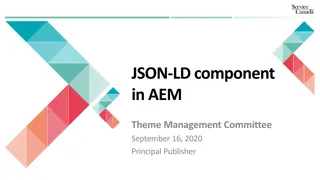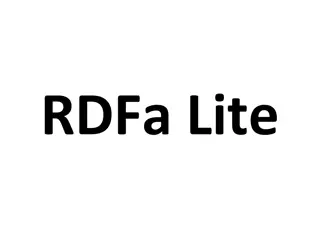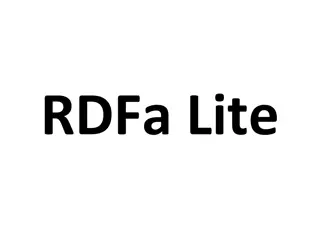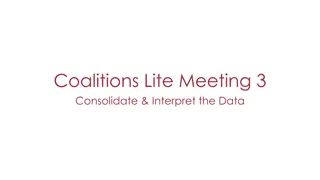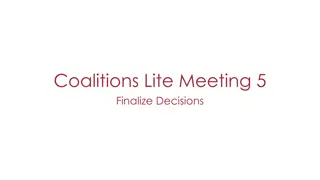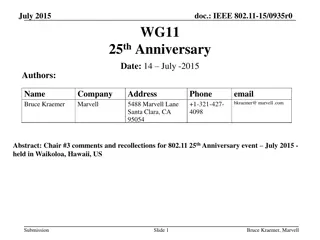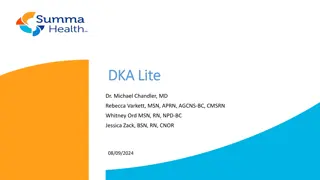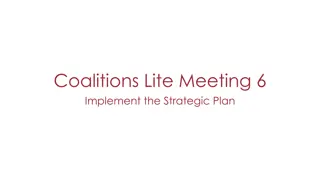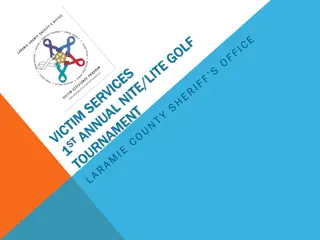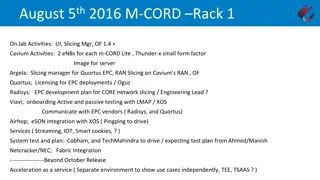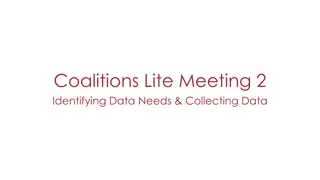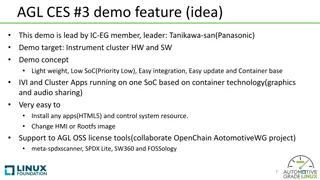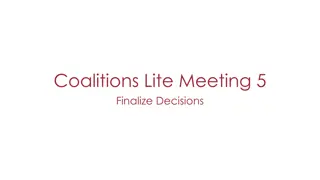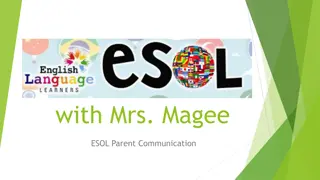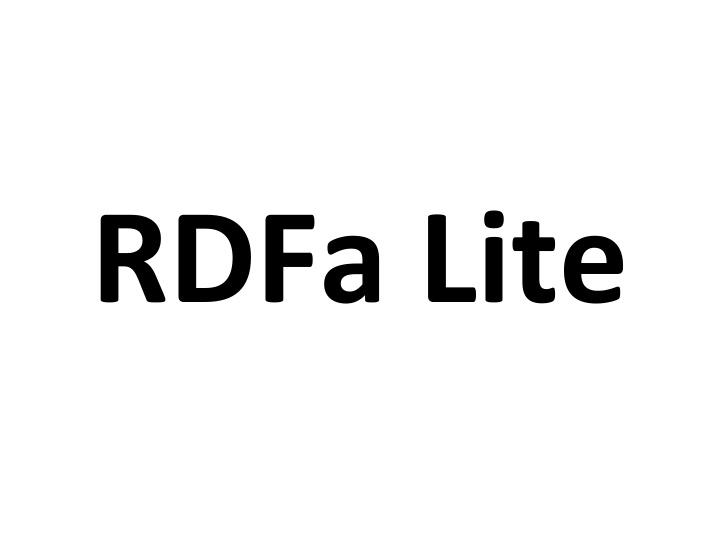
RDFa Lite: A Subset of RDFa 1.1
Learn about RDFa Lite, a subset of RDFa 1.1 that consists of five simple attributes - vocab, typeof, property, resource, and prefix. Discover how RDFa Lite works, its compatibility with schema.org terms, and its advantages over Microdata markup.
Download Presentation

Please find below an Image/Link to download the presentation.
The content on the website is provided AS IS for your information and personal use only. It may not be sold, licensed, or shared on other websites without obtaining consent from the author. If you encounter any issues during the download, it is possible that the publisher has removed the file from their server.
You are allowed to download the files provided on this website for personal or commercial use, subject to the condition that they are used lawfully. All files are the property of their respective owners.
The content on the website is provided AS IS for your information and personal use only. It may not be sold, licensed, or shared on other websites without obtaining consent from the author.
E N D
Presentation Transcript
What is RDFa Lite? RDFa 1.1 Lite is a subset of RDFa 1.1 Five simple attributes: vocab, typeof, property, resource, and prefix Completely upwards compatible RDFa 1.1 Works well with schema.org terms Consists of five simple attributes: vocab, typeof, property, resource and prefix
RDFa Lite example The vocab attribute sets the default vocabulary for a block, typeof sets the class and property introduces a property <p vocab="http://schema.org/" typeof="Person"> My name is <span property="name">Manu Sporny</span> and you can give me a ring via <span property="telephone">1-800-555-0199</span> or visit <a property="url" href="http://manu.sporny.org/">my homepage</a> </p>
RDFa Lite vs. Microdata <p vocab="http://schema.org/" typeof="Person"> My name is <span property="name">Manu Sporny</span> and you can give me a ring via <span property="telephone">1-800-555-0199</span> or visit <a property="url" href="http://manu.sporny.org/">my homepage</a> </p> <p itemscope itemtype="http://schema.org/Person"> My name is <span itemprop="name">Manu Sporny</span> and you can give me a ring via <span itemprop="telephone">1-800-555-0199</span> or visit <a itemprop="url" href="http://manu.sporny.org/">my homepage</a> </p>
Microdata vs. RDFa lite serilization The RDFa Lite serialization looks almost isomorphic to the Microdata version Changes: itemprop -> property itemscope is dropped itemtype-> typeof vocab="http://schema.org/" added to the body or some other enclosing taga
RDFa Lite example: resource The resource attribute gives an object value (URL) for a subject and the prefix attribute eases mixing vocabularies <p vocab="http://schema.org/" typeof="Person" resource="#manu" prefix="ov:http://open.vocab.org/terms/" > My favorite animal is the <span property="ov:preferredAnimal">Liger</span> </p>
Conclusions One advantage of Microdata markup was it was simpler than RDFa RDFa Lite offers the same simplicity But with two advantages: You can add statements in other RDF vocabularies You can take advantage of more complex RDFa markup features if and when needed

